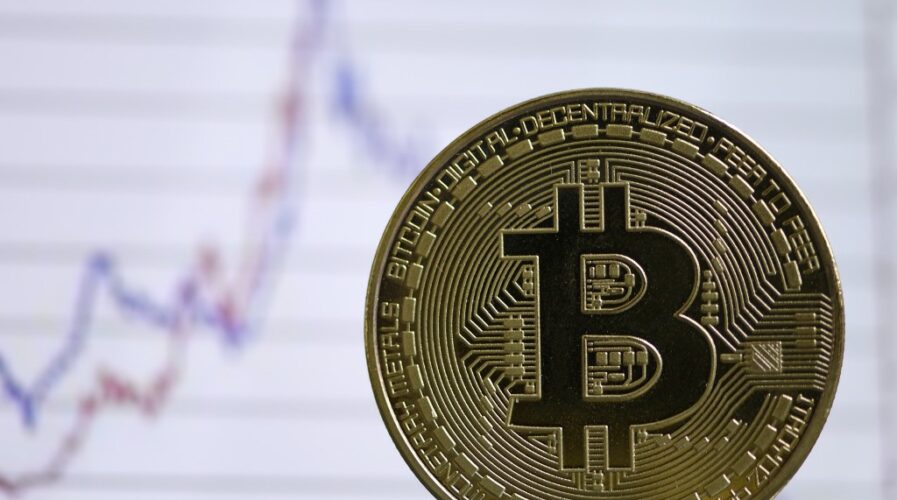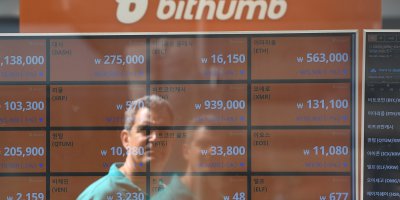
Capital A’s fintech arm BigPay makes a foray into the cryptocurrency space.Source: AFP
APAC leads the way in regulating cryptocurrency markets
- Asian markets have been stepping up cryptocurrency regulations as they look to fortify the trading market and attract institutional investors
The worldwide cryptocurrency markets were sent into flurries of trading activity again in the past couple of weeks, as Bitcoin once again approached the mythical US$20,000 mark for one Bitcoin. The steady climb to this point from US$10,000 per Bitcoin has taken less than three months this time, once again drawing an intense level of scrutiny not just from the public, but from regulators as well.
Since the time Bitcoin came to truly global prominence in 2017, however, the cryptocurrency industry has done a lot of growing up. And in many countries, that means regulation. In recent years, numerous serious cybersecurity breaches have been widely reported on, with hackers infiltrating crypto exchanges, stealing millions of dollars’ worth of virtual currency. Recent research conducted by TIE shows that 75% of cryptocurrency exchanges are reporting dubious volumes.
In the Asia Pacific (APAC) region, a hotbed for cryptocurrency trading, the region’s financial hubs Singapore and Hong Kong have introduced new licensing laws with a prerequisite to obtaining regulatory approval before trading is allowed.
The requirements will include an evaluation of the exchange monitoring technologies being used, including market surveillance for the detection of market abuse behavior, in addition to Know Your Client (KYC), Anti-Money Laundering (AML), and Combating the Financing of Terrorism (CFT) screening solutions that are typical for the onboarding of institutional clients.
Cryptocurrency exchanges need to implement robust control systems to detect, prevent, and report market abuse behavior and financial crime, to offset allegations that crypto markets can be misappropriated for criminal activities, as they are mostly decentralized and deregulated.
In Hong Kong, the Securities & Futures Commission (SFC) treats cryptocurrency assets no different than any other regulated security asset, so crypto exchanges looking to launch a trading venue in HK are subject to the new licensing laws and combined with restrictions limiting trading to institutional clients only.
Almost exactly the same is the situation in Singapore, where the Monetary Authority of Singapore (MAS) issued guidelines stating that Initial Coin Offerings (ICO) basically resemble capital market products like securities, and will be regulated under the Securities and Futures Act. Crypto platforms here are also subject to a licensing regime and are limited to serving accredited investors only.
The financial hubs are not the only ones looking to establish guidelines to protect investors. Japan’s Financial Services Agency (FSA) used to permit its crypto industry to operate on a self-regulating basis, but a 2018 cyber-breach at Coincheck, one of Japan’s largest cryptocurrency exchanges, of a record US$530 million caused the FSA to tighten its regulations on crypto exchanges and to introduce new screening requirements, including a new licensing obligation.
In the 2017 heyday of crypto trading, the Chinese cryptocurrency market accounted for 90% of all crypto trading in the market, but in September 2017, China outlawed ICOs as a means of unauthorized and illegal funding, while crackdowns on crypto trading resulted in the closure of 88 cryptocurrency exchange platforms and the closure of 85 ICOs. This motivated Hong Kong and Singapore to respond to growing investor demand, resulting in an explosive growth of new crypto exchanges.
It appears that the regulatory decision in China to outlaw crypto trading pushed other governments in the APAC region to implement regulatory frameworks to oversee the trading of these new asset types, including new licensing rules to regulate cryptocurrency trading and encourage liquidity.
It will be interesting to see if the forward momentum in Asia can be replicated in Europe and the US, where cryptocurrency regulation has been slower-moving but has shown the potential to be implemented.
READ MORE
- Ethical AI: The renewed importance of safeguarding data and customer privacy in Generative AI applications
- How Japan balances AI-driven opportunities with cybersecurity needs
- Deploying SASE: Benchmarking your approach
- Insurance everywhere all at once: the digital transformation of the APAC insurance industry
- Google parent Alphabet eyes HubSpot: A potential acquisition shaping the future of CRM


